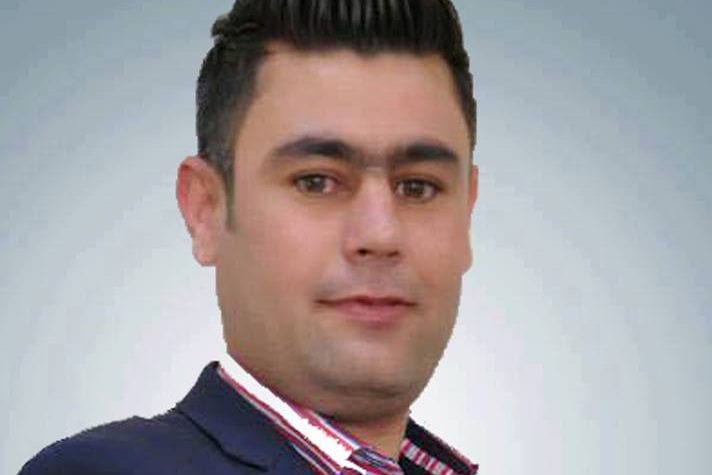Former Iraqi president and the leader of the Patriotic Union of Kurdistan (PUK) Jalal Talabani passed away today in Germany, aged 83. While remaining nominally the head of the PUK, Talabani withdrew from the political landscape and public life after suffering a stroke in December 2012. He was in Germany seeking health care and had reportedly slipped into a coma earlier today.
Talabani was known affectionately by Kurds as Mam Jalal, meaning Uncle.
Jalal Hisamadin Talabani was born on 12 November 1933 in the village of Kalkan near Mount Kosrat. He graduated from the college of law at Baghdad University in 1959 and entered political life from an early age, joining the Kurdistan Democratic Party (KDP) in 1947, at the age of 14.
Throughout his life he has been a journalist, Peshmerga and a smart politician. In 1975, he left the KDP and established the PUK with Nawshirwan Mustafa, Dr. Fouad Masoum, Dr. Kamal Fouad, Adil Murad, Omer Sheik Mus and Abdul-Razaq Faili. The PUK raised the slogan of “autonomy for Kurdistan, democracy for Iraq”.
Consequently, the PUK became the most popular party and revolutionary national movement amongst the Kurdish people, and also a main rival to the KDP.
In April 2005, he was elected president of Iraq by the Transitional National Assembly. He won a second term as president the following year and again in 2010. Talabani is widely considered the Kurdish national symbol as he dedicated his entire life to struggle with the various oppressive Iraqi regimes for the Kurdish national rights.
Read: Post-referendum Iraq… is there enough space in the cemeteries for our victims?
Moreover, Talabani’s charisma was essential to keep friendly relations between the Kurds and Arabs and other ethnic groups in the post Saddam era, as he was a man who brought all ethnic and religious groups together with peace and prosperity.

President of Iraqi Kurdish Regional Government (IKRG) Masoud Barzani speaks during a meeting with a group of journalists, artists and authors at the Saad Abdullah Palace Conference Centre in Erbil, Iraq on September 06, 2017. ( Yunus Keleş – Anadolu Agency )
The death of Talabani throws up questions about the future of the PUK and the region’s politics. Internal conflicts within the PUK have recently reached a point where it has become almost impossible to hide them from the public, particularly after Talabani’s absence due to a debilitating stroke.
Nearly a year ago, two PUK deputies, denouncing what they described as a group acting “unethically” within the party, announced the establishment of new front called the “Decision-Making Body”, claiming that any decisions made outside of this body “will not be recognised”.
First Deputy of the PUK, Kosrat Rasul Ali, and Second Deputy, Barham Salih, made the announcement in a message backed by several members of the PUK’s political bureau, leadership committee and MPs. Moreover, more recently, Barham Saleh announced the formation of a separate list from the PUK party to participate in the upcoming parliamentary elections in the Kurdistan region.
The death of Talabani will of course further deepen the conflicts amongst the PUK leaders to replace him. There are two main scenarios in front of PUK leaders: The best case scenario is that PUK could hold a convention to decide on new leaders and the party’s general secretary, and this would make the PUK strong again on the political landscape in the Kurdistan region of Iraq.
The worst case scenario is that the PUK will be divided into two small parties, and therefore become ineffective. The Talabani’s family will control the PUK and the other dissatisfied political bureau members will form another party. This is the worst case scenario for many reasons: To begin with, divisions within the PUK leads to political instability as the PUK factions have their own armed forces and these forces could be used in political conflicts. Consequently, the PUK branches would compete with each other and may be manipulated by the KDP.
Read more: Kurdish Nationalism and Western double standards
Next, the weakness of the PUK would pave the way for the KDP to practice the policy of divide and rule in the PUK controlled areas. As a result of this, the KDP would continue its aggressive policies in the Kurdistan region of Iraq and would become a decisive force. Finally, factionalism and partition within the PUK would increase the Iranian lever in the PUK-dominated zone, as each PUK faction would seek Iranian recognition for power and dominance in the region, and therefore Iranian authorities could simply manipulate the factions of the PUK.
The views expressed in this article belong to the author and do not necessarily reflect the editorial policy of Middle East Monitor.

![Iraqi President Jalal Talabani in 2003. The politician passed away on 3 October 2017 in Germany where he was receiving treatment [Korean Culture and Information Service/Wikimedia]](https://i0.wp.com/www.middleeastmonitor.com/wp-content/uploads/2017/10/Iraqi_President_Jalal_Talabani-e1507050437986.jpg?fit=920%2C614&ssl=1)







